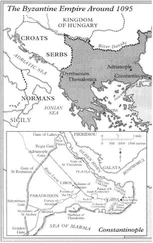Tom Harper - Siege of Heaven
Здесь есть возможность читать онлайн «Tom Harper - Siege of Heaven» весь текст электронной книги совершенно бесплатно (целиком полную версию без сокращений). В некоторых случаях можно слушать аудио, скачать через торрент в формате fb2 и присутствует краткое содержание. Жанр: Исторический детектив, на английском языке. Описание произведения, (предисловие) а так же отзывы посетителей доступны на портале библиотеки ЛибКат.
- Название:Siege of Heaven
- Автор:
- Жанр:
- Год:неизвестен
- ISBN:нет данных
- Рейтинг книги:5 / 5. Голосов: 1
-
Избранное:Добавить в избранное
- Отзывы:
-
Ваша оценка:
- 100
- 1
- 2
- 3
- 4
- 5
Siege of Heaven: краткое содержание, описание и аннотация
Предлагаем к чтению аннотацию, описание, краткое содержание или предисловие (зависит от того, что написал сам автор книги «Siege of Heaven»). Если вы не нашли необходимую информацию о книге — напишите в комментариях, мы постараемся отыскать её.
Siege of Heaven — читать онлайн бесплатно полную книгу (весь текст) целиком
Ниже представлен текст книги, разбитый по страницам. Система сохранения места последней прочитанной страницы, позволяет с удобством читать онлайн бесплатно книгу «Siege of Heaven», без необходимости каждый раз заново искать на чём Вы остановились. Поставьте закладку, и сможете в любой момент перейти на страницу, на которой закончили чтение.
Интервал:
Закладка:
The next day, almost before dawn, a slave arrived to announce that the Fatimid king, the caliph himself, would give us an audience that very morning. I had been lying on my mattress, savouring the feeling of solid ground beneath me and watching the sun stream through the iron screens over the window; with reluctant speed, I rolled out of bed and rummaged through my belongings for my cleanest tunic. Only when I had pulled it on, splashed some water from a bronze basin over my face and ploughed a comb through my hair did I notice Nikephoros. He was sitting on a divan in a plain white under-tunic, while one slave held a mirror in front of him like a votive offering and another trimmed his hair and beard. He was perfectly still, his face a passive mask, yet even that somehow conveyed scorn for the bustle and haste around him.
Thinking perhaps he had not heard the slave’s message, I repeated it. The corner of his mouth turned upward in a sneer.
‘When you have spent more time in palaces, you will realise that courtiers treat hours as you would treat minutes. There is no hurry.’
He kept his head still as he spoke, careless of the sharp razor darting around near his ear. I guessed the slave knew what would befall him if he cut his master’s precious skin.
Without seeming to look at me, Nikephoros added, ‘But if you do intend to be ready, you might dress in something that befits the occasion. I do not want the caliph to think that the emperor Alexios has sent a delegation of slaves and mercenaries to dishonour him.’
His words were cruel and true — it was the truth that stung more. I bit back an instinctive retort and said humbly, ‘I have nothing better.’
‘My attendants will find you something.’ Nikephoros looked in the mirror. ‘I cannot have the caliph judging the emperor by your shortcomings.’
All that morning I experienced the strange urgent indolence that is the lot of ambassadors. Every fifteen minutes another Fatimid messenger would bustle into our rooms to announce, either in broken Greek or by elaborate hand gestures, that the great moment for our audience was nigh, but even after Nikephoros had been shaved, dressed, oiled and perfumed with deliberate care by his slaves, we remained waiting in our quarters. After the first two hours, we learned to ignore the announcements. I stood by the window to breathe what little air blew through it, trying to see something of the surrounding palace and city. The iron screen cut the view into a mosaic of a thousand disjointed fragments: I could see high domes and minarets, corners of courtyards shaded with plane trees, but without any sense of how the pieces joined together. The sun rose high, and the tenor of the messages became more apologetic: the caliph was exceedingly busy, he wanted nothing more than to greet his friends from Byzantium but there was urgent court business he had to attend to; he would certainly see us in the next half an hour, perhaps sooner.
At last, when even Nikephoros’ patience must have worn bare, Bilal appeared. We had not seen him all day, though we had sometimes heard his voice in the passages beyond our room. He strode through the double doors, pushing them back with such force that the dust in the air was swept into great swirling vortices. He wore a ceremonial coat of armour whose silver scales were edged in gold, with a chain mail coif draped over his shoulders like the folds of a cowl. Strange designs were embroidered on the hem of his cloak, jagged lines that cut across the fabric like wounds. I had never seen anything like them, and they only served to heighten his dazzling barbarity.
‘Come,’ he said simply.
Bilal led us through a succession of gates and tiled courtyards to a stifling anteroom where he left us for some minutes. Nikephoros paced the small room without bothering to hide his impatience, and when one of his Patzinak guards ventured a question he snarled his reply. At one point his gaze settled on me, and I quailed, but it was only to bark a reminder: ‘Heed everything the caliph says, and remember it faithfully.’
I nodded. Whatever calm I had found in the broad waters of the sea had boiled away in our confinement, leaving only sharp crystals of misgiving. I longed for this audience to be over so that I could return to Antioch and see Sigurd and Anna — but that was too much to think about now. I squirmed under the unaccustomed weight of the robes Nikephoros had lent me: I could not understand why they should feel heavy, for they were lighter than the armour I had worn often enough. Unease magnified the discomfort. They were too large for me and too grand, though shabby enough to Nikephoros’ eyes, and I felt absurd.
Bilal returned. Without a word, he led us back out through the door, down a short corridor, and into the caliph’s audience room.
I had seen ambassadors received with the full ceremony of the imperial court in Byzantium: I suppose I should not have been overawed by the ritual of a lesser, pagan king. But in Constantinople I had watched from a distance, secure in the knowledge that every piece of pageantry and theatrical trickery only emphasised the grandeur of the Byzantine emperor and — by reflection — his people. Here I stood on the opposite side, and it was not a comfortable place to be. Unlike the open expanse of the emperor’s throne room, the caliph’s hall was supported by a forest of pillars, which stretched away in every direction and cast a maze of long shadows. The spaces in between were crammed with a throng of courtiers who lined both sides of the long aisle that led to the back of the room. There, raised on a stone platform beneath a domed recess, seated cross-legged on a low, bench-like throne, sat the caliph.
Bilal led us forward. It took all my courage, and the sound of the guards advancing behind me, to follow him along the corridor of onlookers, under the weight of their strange and foreign gazes, to the open space below the caliph. Gilded lamps hung from the ceiling, casting a pool of light into which we stepped, but that was a dim hole compared to the radiance that shone from the dais above. It seemed to be bathed in sunlight, though I could not see any windows, so bright that I could hardly look directly at the caliph but had to keep my eyes fixed on the ground at his feet. It was covered in rich carpets, which in turn were strewn with the pale-yellow petals of narcissus flowers. Their ripe scent filled the air.
Whether Nikephoros was cowed by the surroundings, or whether he had mastered his pride in the cause of diplomacy, he showed nothing but deference to the caliph. Without prompting, he dropped to his knees and kissed the ground three times. Clumsily, I and the rest of his retinue, the ten Patzinaks, did likewise. Above us, I could hear someone — Bilal? — speaking solemn words in Arabic. When he had finished, I risked a quick glance upwards. The caliph had stood. A disembodied voice drifted down from the podium, echoed imperfectly in Greek by Bilal.
‘Praise be to God, the Lord of the universe. In the name of God, the lord and giver of mercy, and Mohammed His prophet, peace be upon him, the caliph al-Mustali welcomes the emissaries of the emperor of the Christians. Peace be on you.’
Still on his knees, Nikephoros responded with a recitation of titles and credentials. When he finished, I saw him darting sideways glances to Bilal, waiting for some signal that we could rise. None was given.
‘The emperor Alexios honours us with this embassy,’ said the caliph. His voice sounded surprisingly young for one so exalted, though the foreign language made it hard to be sure.
‘The emperor Alexios has always esteemed your friendship. Now he seeks an alliance.’
The mood in the room tensed as Bilal rephrased this in Arabic. The pillars stretched away all around us, and I began to feel like a lamb caught by wolves in a forest. The caliph leaned forward on his throne, blocking out the light like a cloud covering the sun.
Читать дальшеИнтервал:
Закладка:
Похожие книги на «Siege of Heaven»
Представляем Вашему вниманию похожие книги на «Siege of Heaven» списком для выбора. Мы отобрали схожую по названию и смыслу литературу в надежде предоставить читателям больше вариантов отыскать новые, интересные, ещё непрочитанные произведения.
Обсуждение, отзывы о книге «Siege of Heaven» и просто собственные мнения читателей. Оставьте ваши комментарии, напишите, что Вы думаете о произведении, его смысле или главных героях. Укажите что конкретно понравилось, а что нет, и почему Вы так считаете.










